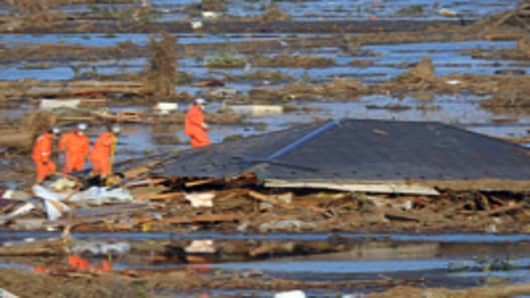Japanese investment bank Nomura is predicting the 9.0-magnitude earthquakethat occurred off the northeastern coast of Japan on Friday will hit Japanese growth in the second quarter and predicts reconstruction efforts will not boost growth as much as some are predicting in the second half of 2011.
"The earthquake, with its epicenter in the Tohoku-Sanriku area, was the largest ever recorded in Japan. The size of the economy of the main earthquake-affected regionis roughly the same as that of the area hit by the Great Hanshin (Kobe) earthquake in 1995, but with this Tohoku Pacific (Sendai) earthquake affecting road networks, power plants and other infrastructure over a wide area, we expect the short-term economic impact to be greater than the Kobe earthquake." says Nomura
Nomura believes the impact on the economy will be most keenly felt in the second quarter.
"Due to the earthquake and tsunami, the Japanese economy is now likely to take longer than we expected to exit its current lull. We had projected an April-June exit but now forecast July-September or possibly October-December."
"We think a slump in the domestic economy caused by the earthquake is an overly pessimistic outlook. However, based on the experience of the Kobe earthquake, we think a V-shaped recovery supported by a rapid upturn in demand driven by government-funded rebuilding work in the affected areas is also unlikely."
"We believe the earthquake has increased the likelihood of additional monetary easing measures by the BOJ, and we expect these measures to be implemented in conjunction with the announcement of new government stimulus measures," says Nomura.
In its report Nomura says, the Kobe earthquake offers the best comparisons for economic consequences, but warns the damage is worse than the 1995 disaster.
"In the case of the Kobe earthquake, the short-term impact on the domestic economy was smaller than anticipated, but economic expansion driven by rebuilding demand took longer to feed through than expected. As with the Kobe earthquake, operating rates at manufacturing facilities have been relatively low, making it comparatively easy for companies to shift production to sites unaffected by the disaster. However, given the extensive damage to road networks, power plants and other infrastructure over a wide area, we think the short-term economic impact of the Sendai earthquake will be greater."



